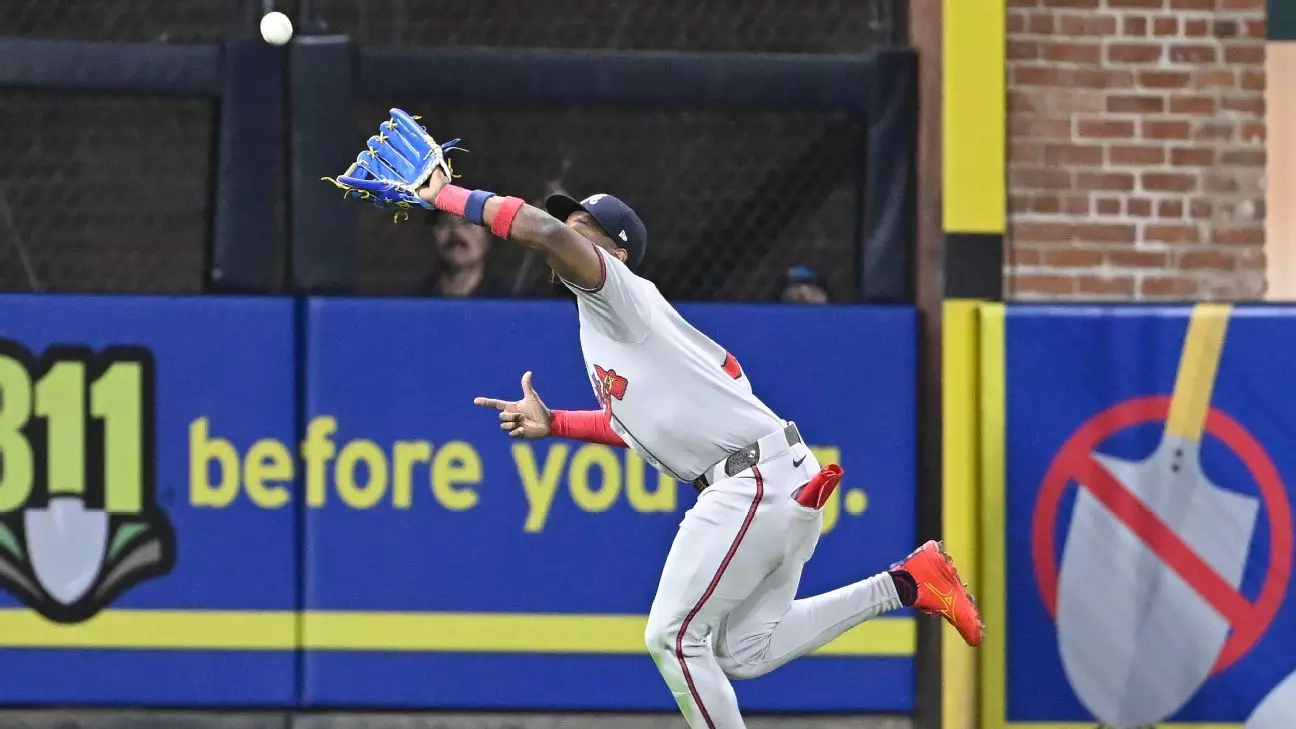In a stunning turn of events that has sent shockwaves through the Atlanta Braves organization and their fan base, outfielder Jurickson Profar has received an 80-game suspension due to a positive drug test for chorionic gonadotropin (hCG). As a substance linked to performance enhancement, hCG raises serious ethical questions about an athlete’s dedication to fair competition. Profar, who had a stellar season in 2023, made headlines last week, but not for his on-field exploits. With the suspension beginning this week, the Braves now face the daunting task of navigating the season without one of their key players.
Profar’s trajectory in Major League Baseball (MLB) had been promising, especially following his best offensive season last year during his tenure with the San Diego Padres. His remarkable slashing stats of .280/.380/.459, coupled with hitting 24 home runs, painted a picture of a player hitting his stride. After signing a lucrative three-year, $42 million deal with the Braves in January, expectations were high for the left fielder. This suspension piques curiosity about the pressures athletes face to perform at peak levels and the darker corners of professional sports.
A Shocking Statement and the Weight of Accountability
In the wake of the news, Profar described receiving the suspension as perhaps the most challenging moment of his baseball career. His words reflect a deep sense of betrayal—not just towards himself but also towards his teammates and fans. “I am devastated,” he wrote, insisting that he had no intention of compromising the integrity of the game. The emotional weight of his apology speaks volumes; it’s a poignant reminder that talented athletes are not just players but also role models, often bearing immense pressure to succeed.
Profar’s insistence that he had tested negative for PEDs eight times in the previous season adds a layer of complexity to this story. In an age where tech and health advancements can often mislead or confuse, it prompts reflection on how professional athletes must navigate the murky waters of rigorous drug testing. His case sheds light on the broader issue of accountability in sports; while leagues strive to combat performance-enhancing drugs, they must ensure a system that is fair and transparent.
The Braves in Turmoil
The suspension could not have come at a worse time for the Braves, who have already been reeling from a rough start to the season. Fresh off a four-game series sweep at the hands of the Padres, the team’s lackluster performance raised concerns about their offensive capabilities. With a mere seven runs in four games, including a dismal zero over their final 22 innings, the Braves have a mountain to climb if they hope to contend this season. Losing Profar, especially at this crucial juncture, leaves a significant hole in an already compromised lineup.
To compound the issue, star outfielder Ronald Acuña Jr. is expected to be absent for at least another month, creating a further dilemma for manager Brian Snitker. Fielding a competitive team, hobbled by injuries and now suspensions, raises questions about the immediate future of the Braves. The organization’s interim solutions, including the call-up of Stuart Fairchild and speculation about Alex Verdugo, illustrate a team searching for answers.
The Broader Impact on MLB and its Players
Profar’s case isn’t an isolated incident; it reflects larger systemic issues within Major League Baseball regarding the pressure placed on players and the lengths to which some might go to achieve success. The league’s response, coupled with the Braves’ dismay, invites discussion about the balance between competitive integrity and the relentless drive for excellence seen in professional sports.
In this context, Profar’s situation might serve as a cautionary tale, urging players to reevaluate what is at stake when choices regarding performance enhancements creep into their decision-making processes. It forces the entire league to reflect on how they educate athletes about the ramifications of banned substances.
As Profar faces this significant setback, he will undoubtedly find support within the community that knows the pressures of modern-day baseball. However, the road to redemption remains long, and he must contend with the consequences of this incident beyond the confines of traditional baseball metrics—navigating trust, reputation, and personal integrity.

